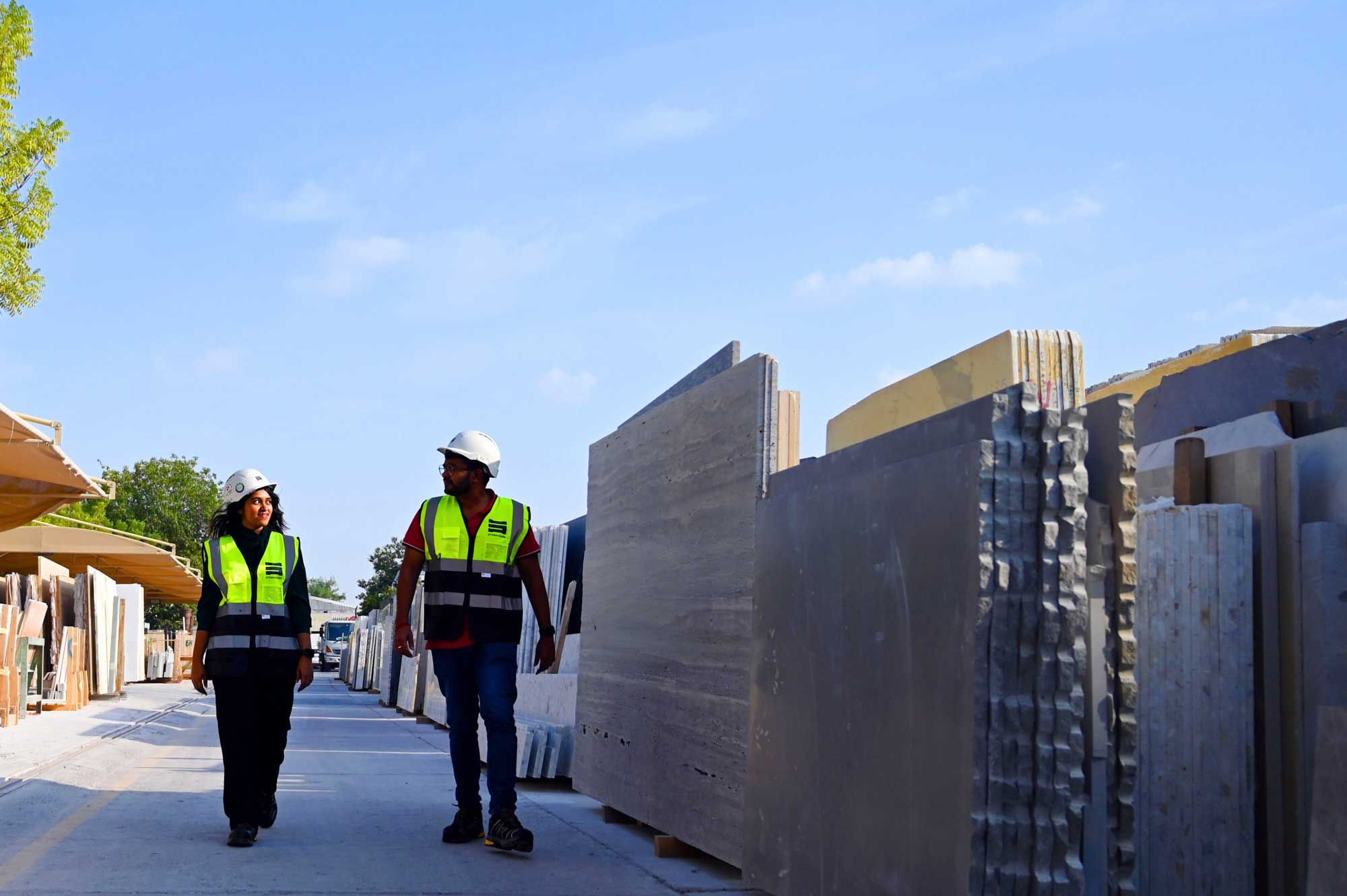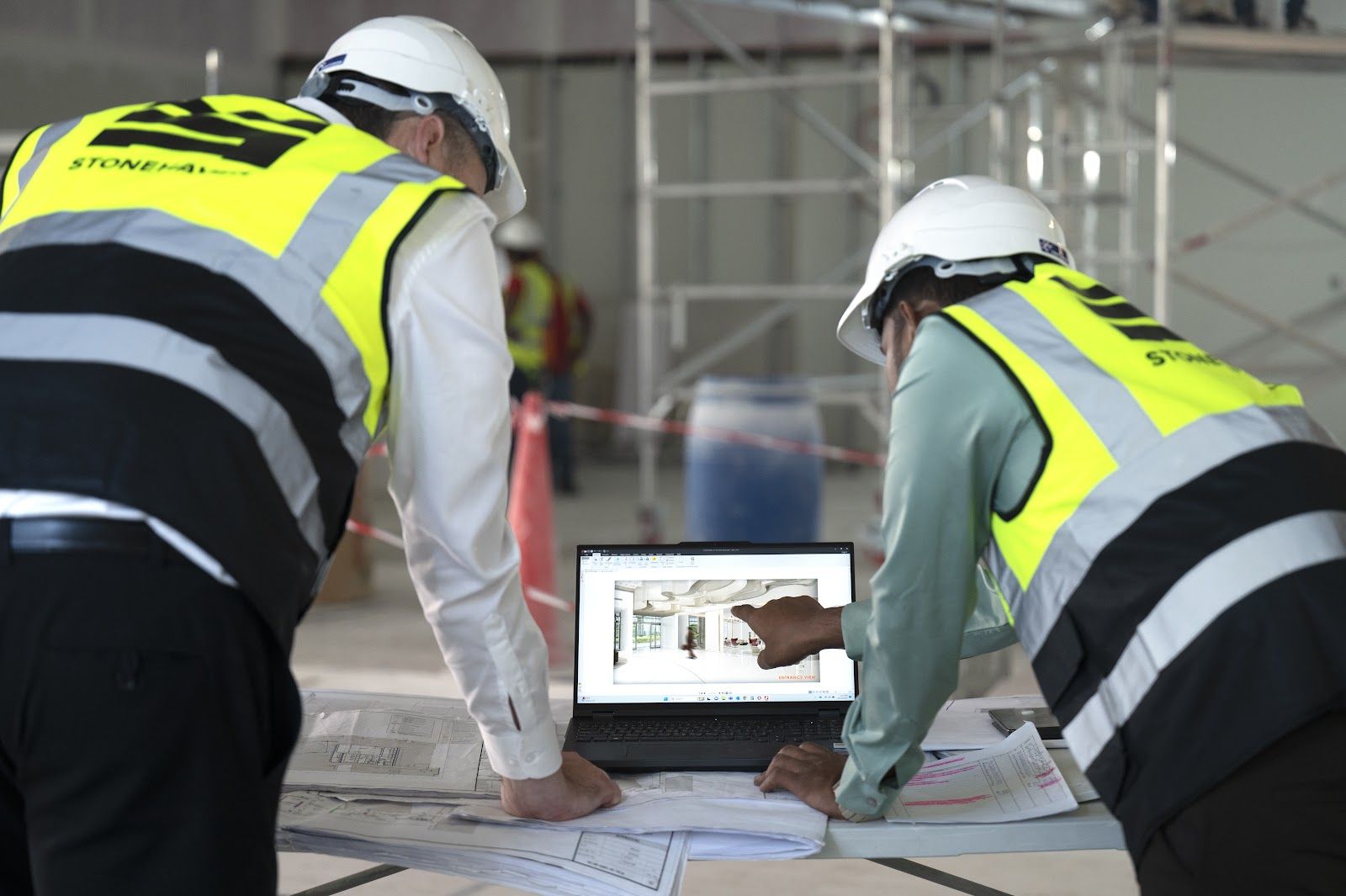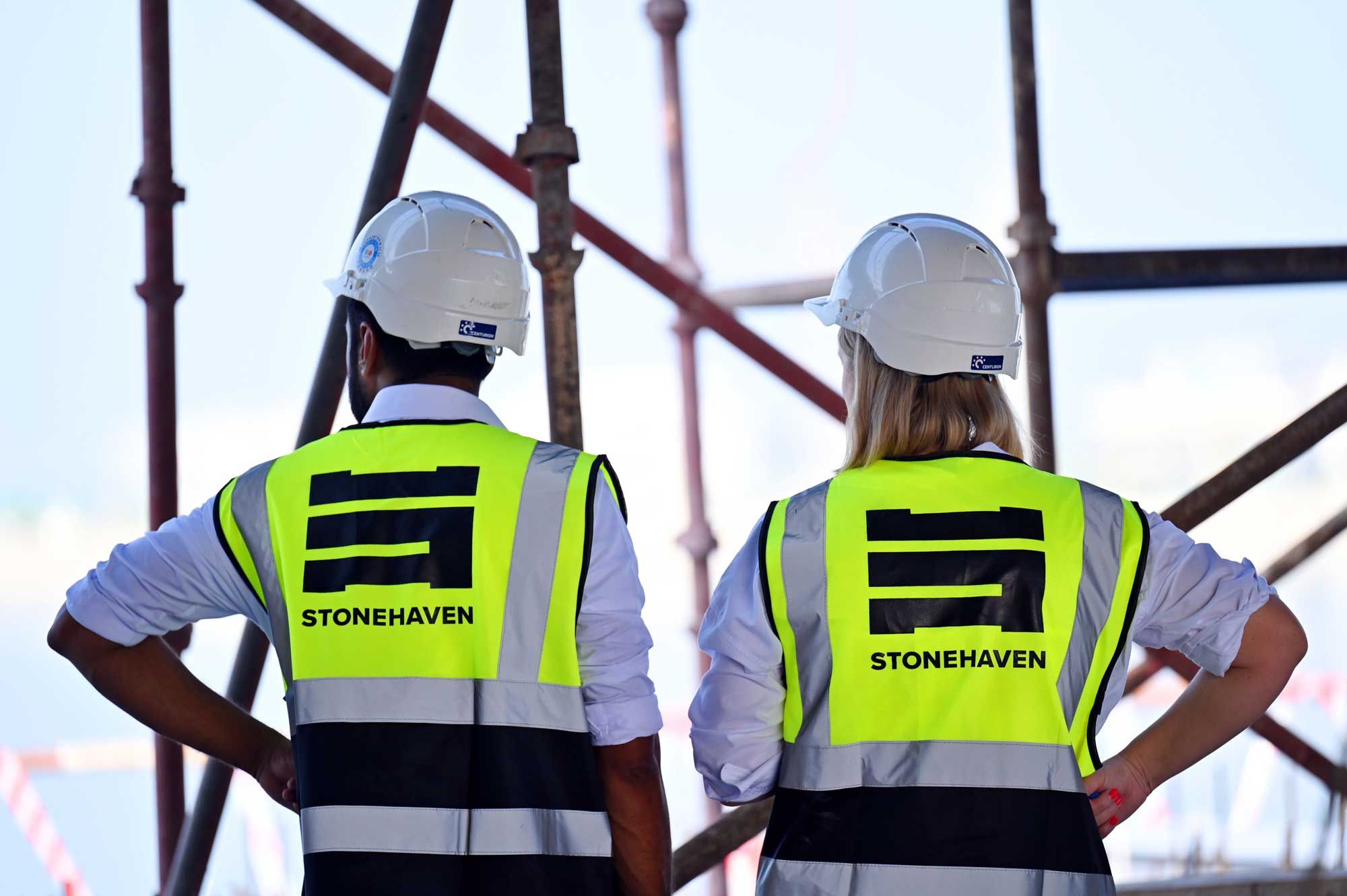In the fast-paced world of construction, time is money, and control is everything. As developers race to meet ambitious sustainability targets, deliver mega-infrastructure projects, and reduce risk, the way projects are managed is undergoing a radical shift.
One delivery model that’s quietly becoming the smart choice for sophisticated developers, especially in the Middle East, is EPCM: Engineering, Procurement, and Construction Management. While EPC contracts dominated in the last two decades due to their “one-stop-shop” appeal, EPCM is emerging as the more agile, transparent, and cost-efficient alternative, particularly for Turnkey Projects that need speed without sacrificing control.
But EPCM isn’t just a new acronym in the alphabet soup of construction. It’s a mindset shift: from outsourcing everything to collaborating strategically. In this blog, we explore what EPCM means in construction, how it compares with EPC and PMC models, and why it’s gaining traction for large-scale, high-value developments.
Whether you’re a real estate developer, infrastructure project owner, or a consultant advising on delivery strategies, this is your deep dive into why EPCM might just be the smartest way to build in 2025.
What Does EPCM Mean in Construction?
EPCM stands for Engineering, Procurement, and Construction Management, and it represents a dynamic and increasingly preferred project delivery model in today’s construction sector, particularly in complex turnkey developments.
Unlike traditional EPC contracts, where a single contractor handles everything from design to delivery, EPCM separates responsibilities while keeping project control firmly in the hands of the client.
In an EPCM arrangement, the client signs contracts directly with suppliers and subcontractors but relies on an EPCM contractor to manage and coordinate the entire process. This makes it ideal for developers who want greater oversight, flexibility, and cost transparency, without sacrificing expert project management.
Here’s EPCM Broke Down:
- Engineering: The EPCM contractor oversees the full design development process, working closely with architects, engineers, and technical teams to ensure that all plans meet regulatory standards, project goals, and performance metrics.
- Procurement: While the EPCM contractor leads procurement planning and bid evaluations, the client retains contractual control, allowing for more competitive pricing and tailored vendor selection.
- Construction: EPCM firms supervise execution on-site, ensuring quality, safety, and compliance. However, the actual building work is done by third-party contractors under contracts signed directly with the client.
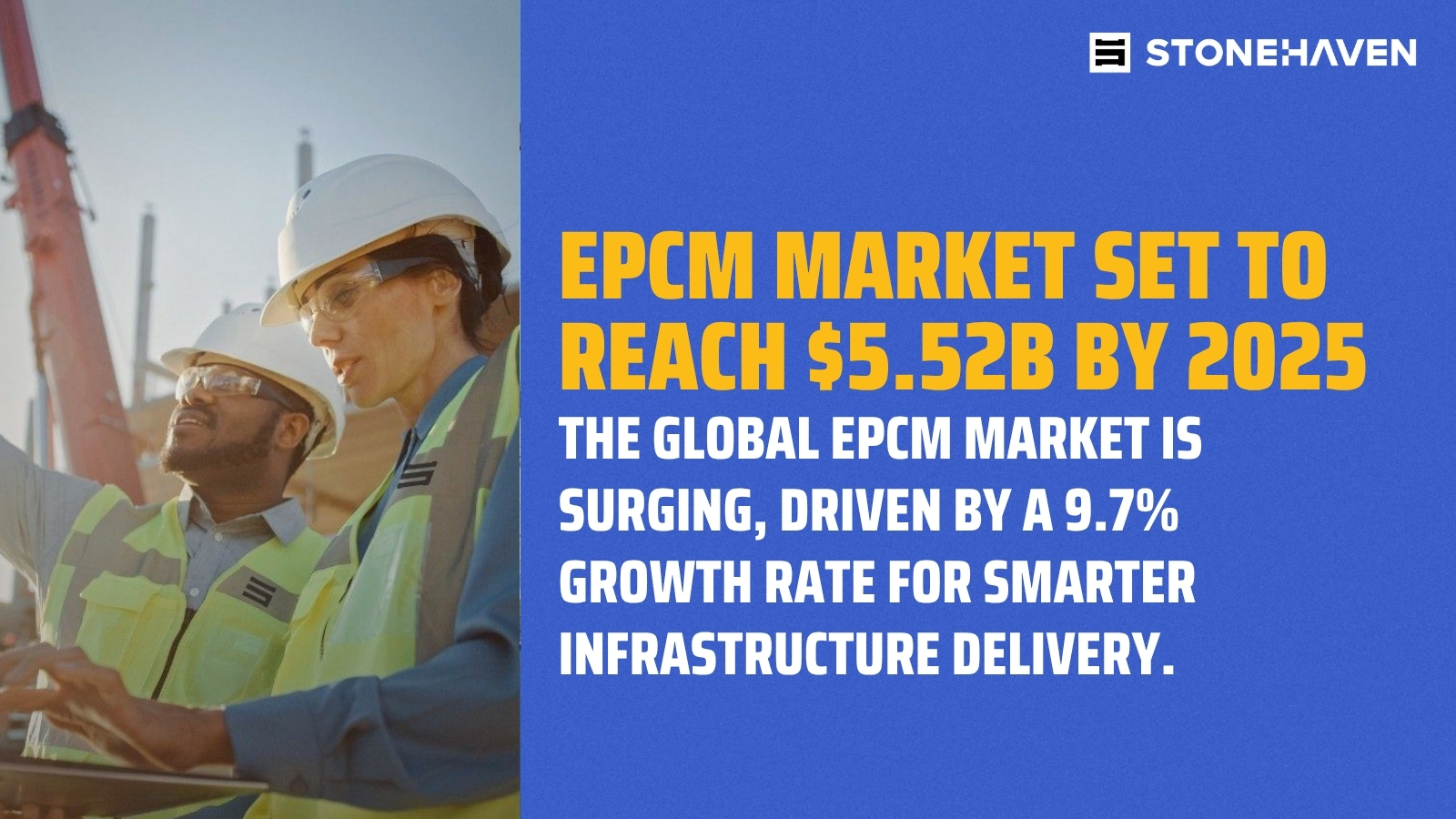
This delivery model is especially well-suited to clients with internal technical teams who want to retain strategic control over procurement and decision-making. For turnkey projects, where delivery time, quality, and budget precision are mission-critical, EPCM enables a balanced partnership between client and expert advisor.
According to recent market data, the global EPCM market is projected to reach USD 5.52 billion by 2025, growing at a CAGR of 9.7% through to 2032. This boom is largely driven by increased demand for flexible delivery frameworks in large-scale infrastructure projects.
In particular, the Middle East and Asia-Pacific are emerging as hotspots for EPCM adoption. As nations in these regions invest heavily in oil & gas, mining, and transport infrastructure, the cost-efficiency and adaptability of EPCM make it the go-to model for managing multi-stakeholder, technically demanding builds.
What is the Difference Between EPCM vs EPC?
At first glance, EPC and EPCM might seem like two sides of the same coin, but in reality, they represent fundamentally different approaches to project delivery in construction. And for developers managing large-scale turnkey projects, understanding this distinction is critical to managing risk, cost, and control.
EPC: One Contract, One Responsibility
EPC, short for Engineering, Procurement, and Construction, is a well-established model where the developer signs a single contract with one entity, typically a large construction firm or consortium. This contractor becomes fully responsible for delivering a ready-to-use facility, covering everything from initial designs through procurement, construction, testing, and handover.
Often deployed under a lump sum turnkey (LSTK) agreement, EPC contracts shift the burden of performance onto the contractor. If there are cost overruns, delays, or design changes, the contractor absorbs the impact. This "single point of accountability" makes EPC attractive for developers seeking simplicity and minimal involvement, but it comes at a price: reduced flexibility and transparency.
EPCM: Many Contracts, Managed Expertly
In contrast, EPCM, or Engineering, Procurement, and Construction Management, is a consultancy-led model where the client retains greater control. The EPCM contractor does not build anything directly. Instead, they orchestrate the process: coordinating design teams, sourcing contractors and suppliers, managing construction activities, and ensuring regulatory compliance. Importantly, the client holds individual contracts with each vendor or trade contractor, while the EPCM firm acts as a project management consultant.
This structure gives the developer full control over procurement decisions, supplier selection, and scope changes, making it ideal for projects where adaptability is key. The risk is shared, rather than being shouldered entirely by one party.
Why this Difference Matters
In large turnkey developments, where budgets are tight and timelines are non-negotiable, the choice between EPC and EPCM can dramatically affect outcomes. EPC contracts may seem convenient, but they can create rigidity, especially when navigating supply chain disruptions, material shortages, inflation, or updated green building mandates like Dubai’s Al Sa’fat certification.
EPCM, by contrast, offers the agility to pivot mid-project, source more cost-effective alternatives, and keep pace with changing regulations. It empowers developers to stay involved while leaning on expert guidance, resulting in greater transparency, faster decision-making, and more sustainable cost control.
In short: if EPC is hands-off and fixed, EPCM is collaborative and fluid, making it increasingly popular among developers in the UAE and beyond.
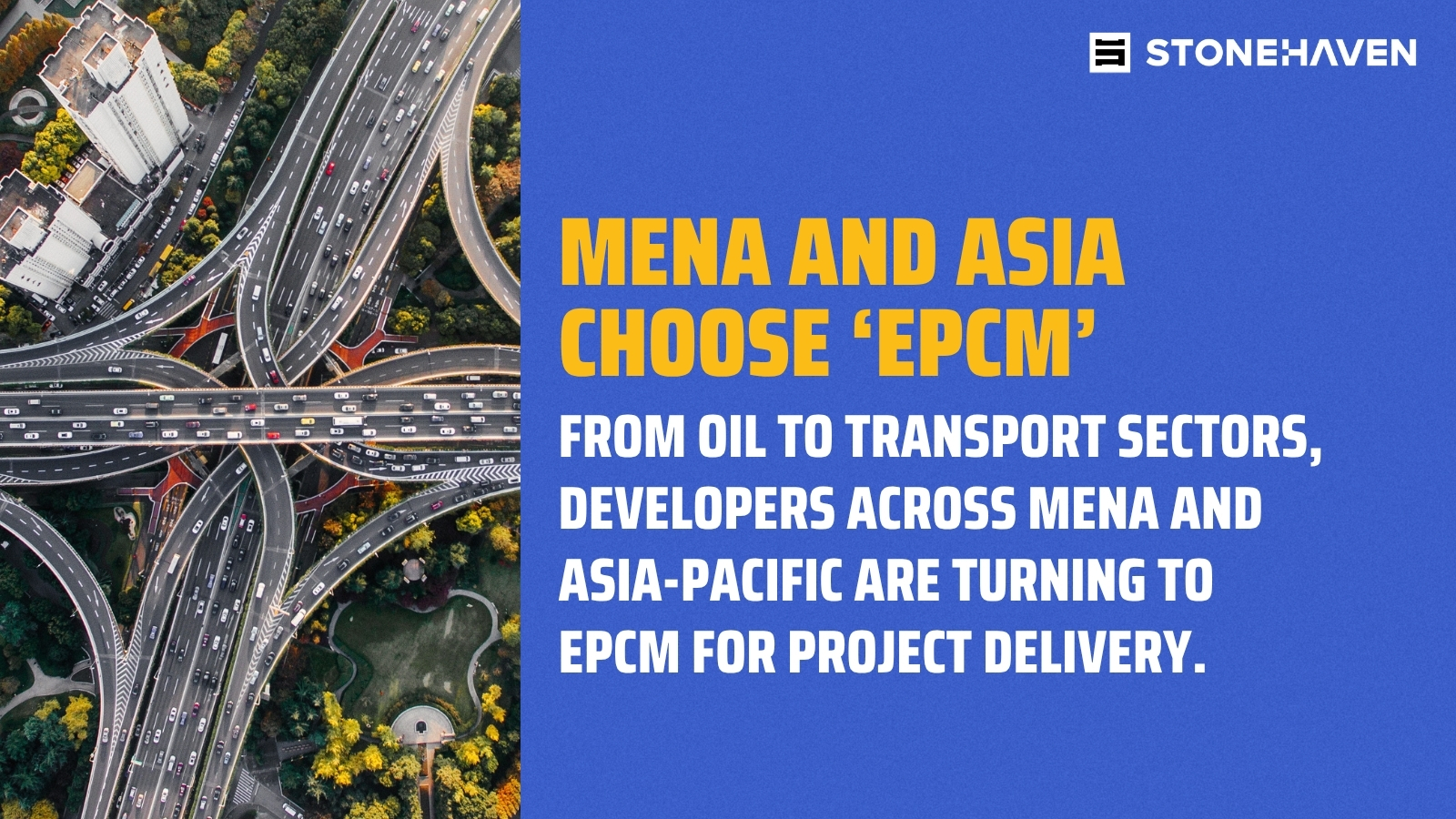
How Does EPCM Work?
Understanding how EPCM in construction works means understanding how control and coordination are balanced across all phases of a project. EPCM breaks the project down into clearly defined phases, each guided by a specialised consultant acting on the client’s behalf.
The process typically begins with feasibility and concept design. During this early stage, the EPCM contractor works with the client to assess the technical and financial viability of the project. Drawing on experience from similar developments, they help refine the concept, advise on risks, and identify opportunities for cost optimisation, ensuring the foundation is strategically sound before committing to capital outlay.
Next comes the engineering phase, where design specifications are finalised and consultants are coordinated. This includes integrating sustainability targets, local building codes, and compliance standards into the design. In turnkey environments, this phase is especially crucial, as the EPCM contractor may also facilitate value engineering, helping reduce long-term operational costs without sacrificing performance or design integrity.
Procurement under the EPCM model operates differently from traditional EPC setups. Rather than allowing a general contractor to mark up and manage procurement behind closed doors, the EPCM contractor facilitates the process transparently. The client signs contracts directly with vendors and subcontractors, while the EPCM contractor leads the tendering, bid evaluation, vendor negotiation, and vetting. This open-book approach ensures more competitive pricing and reduces unnecessary margins, which is particularly beneficial for projects operating under tight budget scrutiny.
Once construction begins, the construction management phase is where the EPCM contractor steps in as the client’s boots on the ground. They supervise site mobilisation, oversee construction sequencing, and track timelines, budgets, and quality. From safety audits to progress reporting, the EPCM firm operates as an embedded project team, ensuring that site operations are efficient, compliant, and aligned with the client’s goals, without physically building anything themselves.
Finally, during commissioning and handover, the EPCM contractor ensures all systems are tested, snag lists are resolved, and documentation is in order. Compliance checks are conducted and the completed facility is transitioned smoothly to the owner.
Today, this entire workflow is increasingly supported by digital tools, such as BIM (Building Information Modelling), 4D and 5D planning simulations, and real-time cost dashboards. These technologies enhance transparency and improve decision-making in real time, which is critical for managing turnkey projects with complex scopes, compressed timelines, and multiple stakeholder demands.
What are the Advantages of Using EPCM in Projects?
One of the most significant advantages of EPCM is its ability to deliver greater transparency. Unlike EPC contracts, where a single contractor controls the procurement process and applies their own markups, the EPCM model allows the client to sign contracts directly with vendors. This open-book structure provides full visibility into unit costs, labour rates, and materials, removing the opacity that often leads to budget overruns.
Flexibility is another powerful advantage. In a world where green building certifications like Al Sa’fat evolve regularly and material markets fluctuate, being able to pivot midstream is essential. EPCM makes this easier by allowing clients to switch suppliers, adjust specifications, or revise scope without the penalties and rigid change orders typically found in EPC contracts.
Then there’s specialist-driven efficiency. EPCM firms are seasoned in orchestrating large teams of consultants, contractors, and suppliers. They bring a macro-level view to scheduling and value engineering, helping avoid the cascade of delays or cost creep that can stem from poor coordination. Their expertise in integrating timelines and mitigating risk means you can focus on vision while they handle execution.
Cost control is embedded in the DNA of the EPCM model. Because procurement is competitive and managed in packages, clients can negotiate better deals, avoid inflated contractor markups, and structure cash flows more predictably. This is especially important for real estate developers and infrastructure owners balancing investor expectations with long-term sustainability goals.
Equally important is the level of customisation EPCM allows. Every turnkey project has unique priorities, whether it’s modular construction, heritage conservation, or decarbonisation targets. EPCM lets you tailor solutions at every phase without derailing the entire schedule.
Lastly, the model enables faster problem-solving. Because EPCM is built on collaboration and decentralised decision-making, issues can be resolved quickly. The EPCM contractor acts as a facilitator, unblocking bottlenecks, mediating between trades, and keeping momentum without micromanagement.
For engineering firms exploring delivery models, EPCM offers that rare balance between control and confidence, making it a go-to strategy for sophisticated construction in 2025 and beyond.
What is the Difference between Design-Bid-Build and EPCM?
Design-Bid-Build (DBB) is the traditional construction delivery method. It follows a strict sequence: first, the full design is completed; then the project is tendered out; finally, construction begins. This linear model offers clarity and upfront cost predictability but is often rigid and time-consuming. Every stage must be completed before the next can begin, which creates delays, especially if revisions are needed or market conditions shift mid-project.
EPCM (Engineering, Procurement, and Construction Management) disrupts that linearity. It allows design and procurement to progress in parallel, enabling earlier mobilisation and faster delivery. For large, turnkey projects facing tight deadlines, this flexibility is critical. EPCM’s phased procurement also allows long-lead items to be sourced early, which helps reduce schedule risks, a major advantage in today’s volatile supply chain climate.
Beyond speed, flexibility is a defining difference. In DBB, once the contractor is appointed, changing materials, design details, or specifications often leads to costly delays or legal disputes. With EPCM, the client retains direct control over procurement and vendor selection, so mid-project adjustments, whether to meet green building regulations or to respond to budget shifts, can be made with fewer complications.
Risk is another key distinction. DBB places much of the project risk on the client, particularly if the lowest-bid contractor underperforms. EPCM, by contrast, brings in a dedicated management firm to oversee each phase. This not only distributes risk more evenly but provides expert oversight that improves outcomes across quality, cost, and time.
In short, DBB may suit simpler builds, but for fast-moving, high-stakes developments, EPCM offers the control, speed, and adaptability that modern projects demand.
What is the Difference between a PMC and an EPCM?
While both PMC (Project Management Consultancy) and EPCM (Engineering, Procurement, and Construction Management) models serve to support project delivery, their roles differ dramatically in both scope and depth. The distinction becomes especially important when managing complex turnkey construction projects, where integration and execution are everything.
A PMC typically functions as a strategic advisor. Their primary responsibility is to represent the client’s interests by providing high-level oversight, ensuring the project adheres to its intended timeline, scope, and budget. However, they remain at arm’s length from execution. PMCs offer valuable direction and reporting, but they do not directly control procurement, nor do they manage the intricate coordination of engineering and construction teams. Their role is observational and consultative, more like a coach calling plays from the sidelines.
EPCM, by contrast, is far more embedded in the daily workings of a project. An EPCM firm takes on comprehensive responsibility, coordinating the full spectrum of engineering, procurement, and construction management activities. From tender preparation and vendor selection to schedule control and regulatory compliance, the EPCM contractor is actively steering the delivery process. They act as an extension of the client’s internal team, integrating directly with consultants, contractors, and suppliers to keep the project moving efficiently.
In essence, EPCM combines strategic insight with operational leadership. For turnkey projects, which demand real-time problem-solving, flexibility, and coordination across multiple domains, EPCM offers a more agile and hands-on approach than a traditional PMC. It’s not just about guidance, it’s about execution, and getting things built right, the first time.
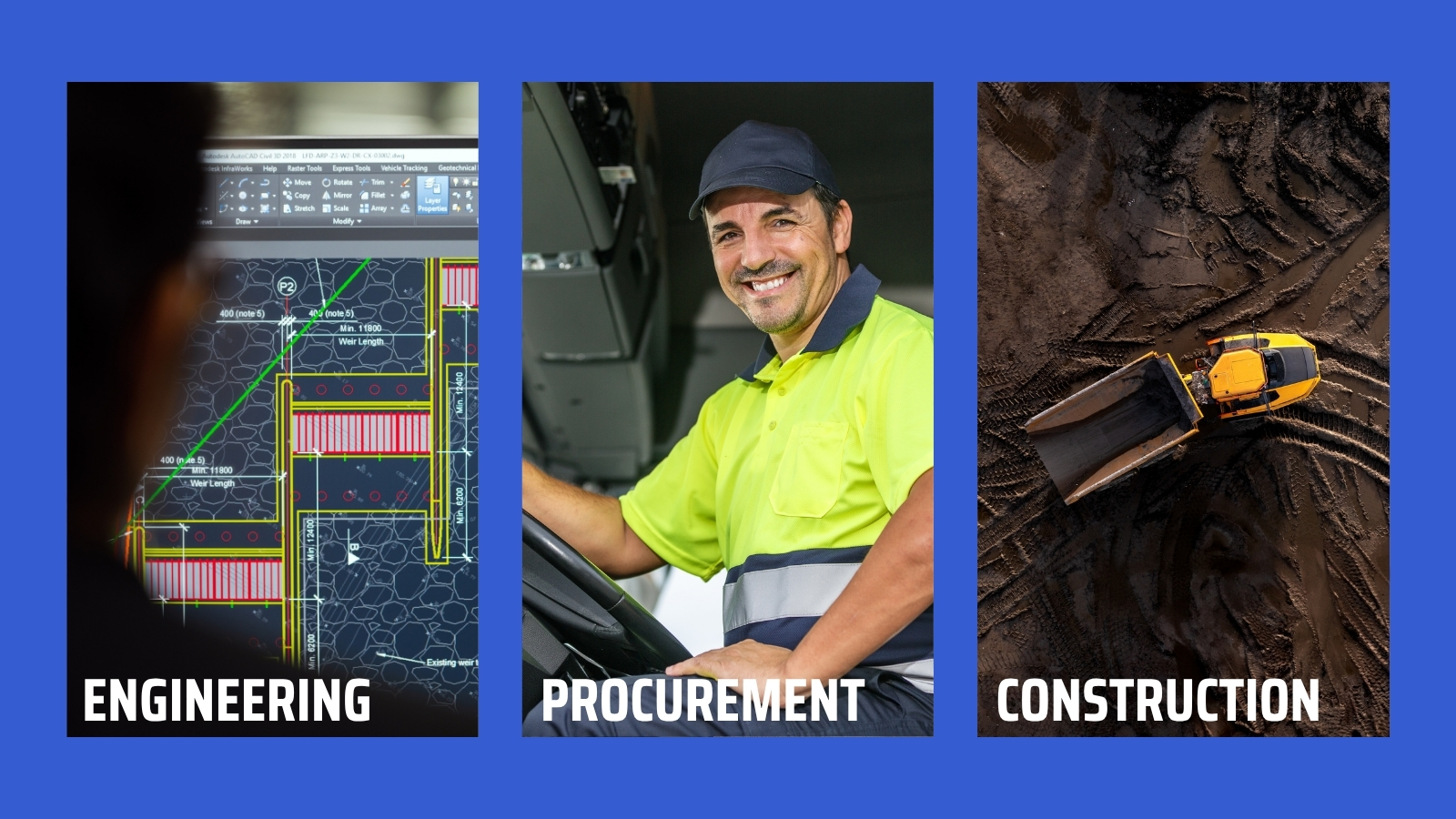
Conclusion
In a region racing toward smart cities, carbon-neutral targets, and architectural landmarks, project delivery methods are no longer just technical decisions, they’re strategic ones.
EPCM in construction offers a compelling mix of flexibility, oversight, and cost control that traditional models like EPC, DBB, or PMC can’t always guarantee. For developers managing complex turnkey projects, especially in dynamic markets like the UAE, Saudi Arabia, or India, this model offers better alignment with digital workflows, compliance demands, and financial planning.
If you’re still relying on EPC contracts to de-risk your builds, it may be time to rethink the equation. In 2025 and beyond, EPCM isn’t just another acronym. It’s the future of how high-stakes projects get delivered, smartly, transparently, and efficiently.
About Us
At Stonehaven, we don’t just manage construction projects, we help shape the future of how they’re delivered. As a leading consultancy in the UAE specialising in cost management, green building compliance, and EPCM services, we work alongside developers, infrastructure owners, and consultants to turn complex visions into real-world outcomes. Our strength lies in balancing ambition with precision, ensuring that every project is completed on time, within budget, and to the highest technical and environmental standards.
We bring a comprehensive, hands-on approach to turnkey project delivery, beginning with in-depth feasibility assessments that help clients navigate risk and unlock value early. Our procurement strategies are intelligently aligned, ensuring regulatory compliance and sustainability targets are met without compromising project momentum. With real-time cost tracking and forecasting embedded into every phase, we deliver transparency at each decision point, so you can build smarter, not just bigger.
What sets Stonehaven apart is our collaborative ethos. We’re not here to sit on the sidelines. We embed directly into your project teams, aligning every step with your goals and priorities. Whether we’re coordinating complex stakeholder groups, optimising contract packages, or shaping long-term delivery models, our work is built on trust, accountability, and forward-thinking strategy.










